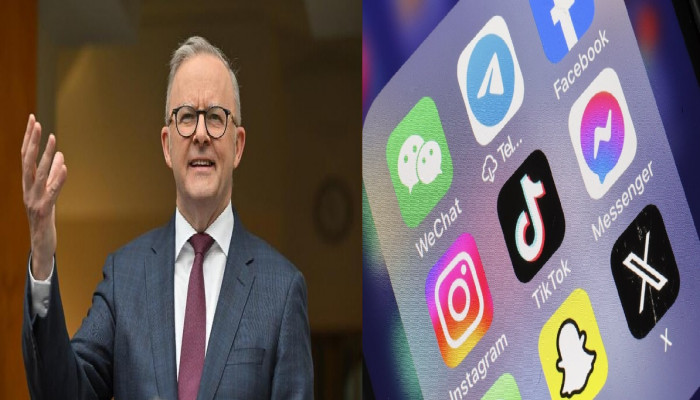Australia bans social media use for children under 16 in landmark legislation
- In Reports
- 11:16 AM, Nov 29, 2024
- Myind Staff
In a groundbreaking move, Australia has become the first country to implement a nationwide ban on social media usage for children under the age of 16. The legislation, passed earlier this week in Parliament, is designed to address growing concerns about the adverse effects of social media on young people's mental health, including rising rates of cyberbullying, addiction, and exposure to harmful content.
The new law mandates that social media platforms such as Facebook, Instagram, TikTok, and Snapchat enforce stricter age verification measures to block children under 16 from accessing or creating accounts. These regulations, set to take effect in early 2025, provide both parents and social media companies time to adjust to the new rules.
Under the legislation, platforms will have a one-year grace period to develop and implement robust systems for detecting and preventing access by underage users. Once enforced, non-compliance will result in significant penalties, with fines reaching up to $50 million (AUD) for repeated violations.
Australian Prime Minister Anthony Albanese hailed the law as a critical step in safeguarding young people's mental and emotional health. "This law is a significant measure to protect children's mental and emotional health in the digital age," he stated.
The decision comes after extensive research by Australian health experts, who have raised alarms about the detrimental impact of social media on children. A 2023 report by the Australian Psychological Society revealed that nearly 40% of teenagers reported experiencing anxiety or depression due to their online interactions. Excessive social media use has been linked to higher rates of depression, anxiety, and sleep disorders among adolescents, with cyberbullying and social comparison identified as major contributing factors.
Despite widespread support, the legislation has faced criticism from some quarters. Digital rights advocates argue that the ban infringes on children's rights to free expression and access to information. Others warn that it could lead to the emergence of black markets for social media accounts, allowing children to bypass age verification systems. Additionally, concerns have been raised about the privacy and data security implications of implementing advanced age verification technologies, such as facial recognition and digital IDs.
Australia’s bold decision has sparked global interest, with experts watching closely to see if other nations will follow suit. While the move addresses pressing concerns about youth well-being in the digital age, its long-term impact on children and the broader society remains to be seen.
As the world grapples with the challenges posed by social media, Australia’s pioneering legislation underscores the urgency of protecting young people in an increasingly interconnected world.







Comments